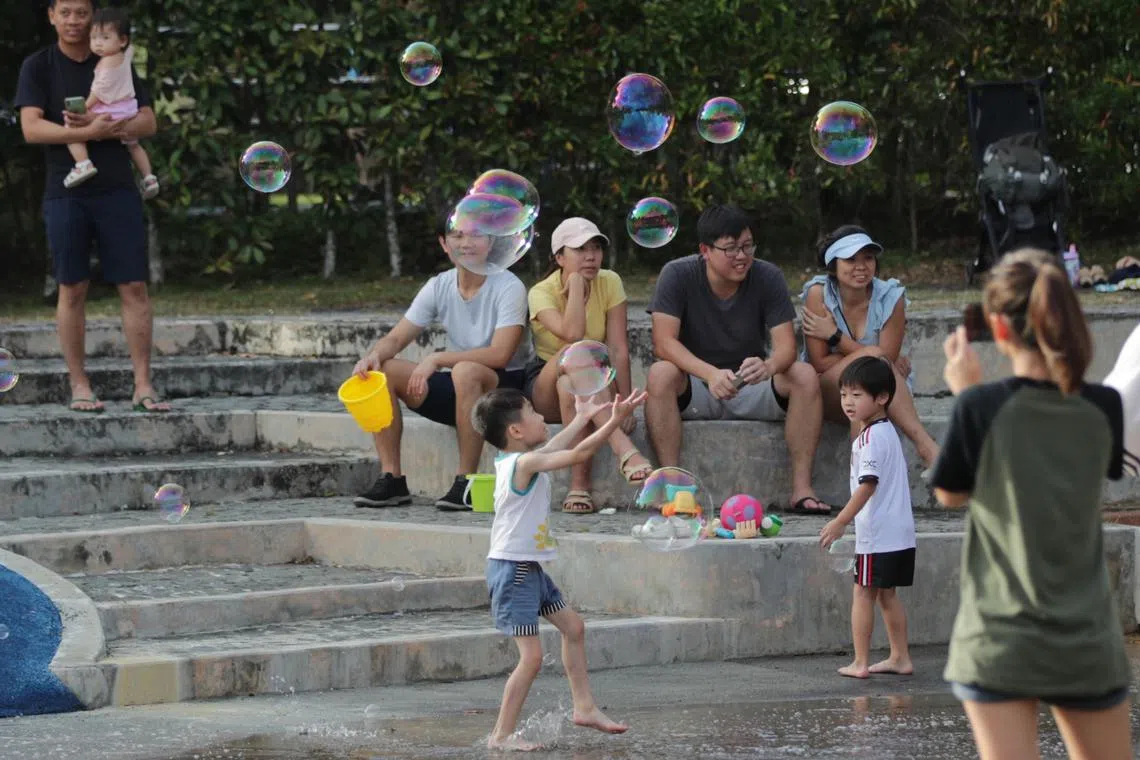Sustaining social mobility, building inclusive society key to helping families: Masagos
Sign up now: Get ST's newsletters delivered to your inbox

Minister for Social and Family Development Masagos Zulkifli said social mobility has been kept alive across generations in Singapore.
ST PHOTO: GIN TAY
Follow topic:
SINGAPORE - Sustaining social mobility across generations, uplifting those in need, and working together to build a caring and inclusive society, are ways to help families improve their circumstances and build a better and brighter future.
Minister for Social and Family Development Masagos Zulkifli made these points in Parliament on Tuesday during the second day of the debate on the President’s Address.
He said that social mobility has been a challenging issue across the world, with many advanced societies facing wage stagnation.
He noted that some young people in other countries do not believe they will be better off than their parents, and many wonder if they can achieve their aspirations, or if they will stay in the social class they were born into.
There is a loss of unity, and society is fractured and weakened in countries where this hope has disappeared, he said. “And when the absence of upward mobility is overlaid with racial or religious fault lines, the social fabric frays quickly. We must not let this fate befall us.”
He said that in Singapore, social mobility has been kept alive across generations. The aim is to build a country where there will always be opportunities for families, and where their children have hope of a better and brighter future.
Mr Masagos described how the Government will strengthen policies to uplift lower-income families.
It has invested significantly in affordable and quality pre-schools, to build a strong foundation for children and give them a good start in life.
It is also providing more intensive support for mothers and children early on in life through KidStart, he said. Since the programme was launched in 2016, more than 6,200 children have benefited.
“We do not wait for families to come forward. Instead, we reach out to parents as early as during the mother’s pregnancy, and work with a team of healthcare and social service professionals, volunteers and community partners, to support these children to give them strong chances early in life,” said the minister.
“This prevents disparities in the early years from snowballing into greater disparities down the road.”
Support has also been provided to families through subsidies, targeted assistance and schemes to keep people employed and ensure wage growth, he said.
“But we can do more. We will be proactive because we know we need to identify issues early before they snowball into larger issues.”
To ensure lower-income families get the help they need quickly and easily, and eventually achieve the “3S” of stability, self-reliance and social mobility, he acknowledged that the Government must ensure that services are family-centric and easily accessible.
The Community Link (ComLink) programme, which coordinates social service support for low-income families who face multiple challenges, was expanded islandwide
He also stressed the importance of reinforcing and supporting the personal agency of families who wish to improve their circumstances. He said many families are taking active steps to secure a better future.
During the Forward Singapore engagements,
More partners can work to uplift communities in Singapore, he added, as uplifting those in need goes beyond just social service agencies and also involves businesses, neighbours and community partners.
“It involves all of us. We need partners to share their resources and know-how, and distribute their social capital to uplift those who have less.”
For example, Mr Masagos said, organisations can run mentorship programmes in their workplaces to widen the horizons of youngsters from less privileged backgrounds, and inspire them to work towards a brighter future.
It is also timely that many businesses are weaving social impact into their very core.
By recognising their responsibility to the wider community, they are reshaping their businesses, he said.
“We need businesses to lead the charge and role model the ways in which they uplift communities. We will guide businesses in better measuring and expanding their social impact.”
Mr Masagos said it is important to tap the best minds and translate research into practice, in order to make a tangible impact.
He noted that many academics, researchers and institutes of higher learning have taken a keen interest in and are actively working to strengthen and support families – from evaluating programmes that seek to ensure every child gets a good start in life, to examining ways to enhance family resilience, so that they can bounce back after setbacks.
He said no government can sustain social mobility on its own, and everyone has a role to play in supporting those in need.
He said: “Let us cast our nets wider beyond our own sectors and work together in common cause to uplift those in need. Let us work together to keep social mobility alive in Singapore.”


